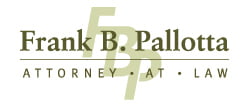1. Shop around your agents and lenders
Having a good real estate agent and lender is the biggest contributing factor to how well your home buying venture is going to be. Don’t be afraid to shop around and make sure who you’re working with is a good fit. Reviews are your friend.
2. Get Pre-Qualified before you do anything!
Once you’ve found the lender you want to work with, and your real estate agent you’re going to need to get pre-qualified and get a pre-approval letter from the lender before you start looking at houses.
3. Don’t use your credit after pre-qualification!
Once you get your pre-approval letter, stop using your credit until you’ve closed on the house! Any hit on your credit at this point could have a severe impact on your ability to buy the house. Pre-approval is not the same as getting approved, there’s still room for error. If you’re in a position where you’re about to buy a new car at the same time as you’re applying for the house, make sure that’s discussed with your lender and considered in the pre-qualification process.
4. Negotiations are on the table until you sign
Up until you sign the contract you can negotiate all kinds of things. Beautiful sectional sofa that fits the living room perfectly or a swing set in the back yard you’d like to make sure your kids have? That can be put in the contract.
5. Contingencies are a buyer’s friend
In a best case scenario you have them and never need them, but in a worst case scenario you’ll be glad they were there.
6. Home inspections are critical, but not foolproof
Part of the home-buying process is called “Due diligence” ; it gives you an opportunity to do research on the house and neighborhood before a sale is finalized. This includes a home inspection, a professional going through the home and giving you feedback on what types of repairs or damages will need repairs done. A home inspection can reveal critical issues with the house that need to be addressed, either by negotiating or walking away. But it’s important to note that a home inspection is not 100% foolproof and there’s always going to be things that come up later that the home inspector couldn’t have known about.
7. File for your Georgia Homestead Tax Exemption as soon as you can after closing!
If you buy a home in Georgia and use it as your primary residence filing the GA homestead tax exemption can save you thousands of dollars on your taxes a year. Don’t wait and regret it!
8. Closing costs aren’t part of your mortgage
Closing costs are typically paid by the borrower on the loan (the buyer) and are more often than not paid at closing through certified checks. But not always! There are ways to fold the closing costs into the mortgage or negotiate to have the seller cover them. They’re just not very common.
9. You don’t have to have a 20% down payment all the time
The FHA and USDA home loans are designed to help those who may not qualify for a conventional mortgage loan that requires the 20% down payment. There are a variety of pros and cons to these loans, but they’re an incredibly useful program for a variety of people and situations.
10. You need a real estate lawyer to oversee closing! And you need to reach out to them at the right time!
The purchase of any home in Georgia requires a licensed real estate attorney present at closing. If you’re taking steps to close on your house in the next 30-60 days give us a call! At Frank B. Pallotta Law we are licensed Real Estate Lawyers with 20 years of experience helping our clients in Georgia navigate the closing process. Reach out to us with your questions. We’re here to help.

